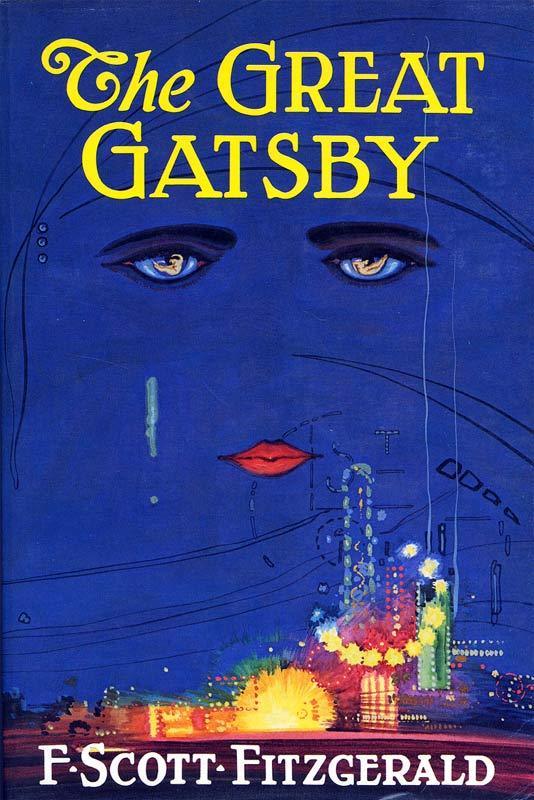What is this?
The Genius annotation is the work of the Genius Editorial project. Our editors and contributors collaborate to create the most interesting and informative explanation of any line of text. It’s also a work in progress, so leave a suggestion if this or any annotation is missing something.
To learn more about participating in the Genius Editorial project, check out the contributor guidelines.
Compelled my imagination many days, T.S. Eliot – La Figlia Che Piange
What is this?
The Genius annotation is the work of the Genius Editorial project. Our editors and contributors collaborate to create the most interesting and informative explanation of any line of text. It’s also a work in progress, so leave a suggestion if this or any annotation is missing something.
To learn more about participating in the Genius Editorial project, check out the contributor guidelines.
To be lost that their loss is no disaster. Elizabeth Bishop – One Art
What is this?
The Genius annotation is the work of the Genius Editorial project. Our editors and contributors collaborate to create the most interesting and informative explanation of any line of text. It’s also a work in progress, so leave a suggestion if this or any annotation is missing something.
To learn more about participating in the Genius Editorial project, check out the contributor guidelines.
What is this?
The Genius annotation is the work of the Genius Editorial project. Our editors and contributors collaborate to create the most interesting and informative explanation of any line of text. It’s also a work in progress, so leave a suggestion if this or any annotation is missing something.
To learn more about participating in the Genius Editorial project, check out the contributor guidelines.
What is this?
The Genius annotation is the work of the Genius Editorial project. Our editors and contributors collaborate to create the most interesting and informative explanation of any line of text. It’s also a work in progress, so leave a suggestion if this or any annotation is missing something.
To learn more about participating in the Genius Editorial project, check out the contributor guidelines.







What is this?
The Genius annotation is the work of the Genius Editorial project. Our editors and contributors collaborate to create the most interesting and informative explanation of any line of text. It’s also a work in progress, so leave a suggestion if this or any annotation is missing something.
To learn more about participating in the Genius Editorial project, check out the contributor guidelines.
In this critical chapter, Daisy and Gatsby finally meet one another through Nick.
Thematically, this chapter considers Gatsby’s fantastical idea of Daisy as it relates to the reality of who Daisy is.
It’s also important to keep in mind that Nick isn’t a completely reliable narrator in this chapter— he brings his own judgements and biases to the narrative, and there’s a distinction between Nick relating events and Nick speculating about how other characters are feeling.
BUY THE GREAT GATSBY
Amazon
Barnes & Noble
[url=http://fitflop.icanri.org/]fitflop塑身鞋[/url] 鎵€鏈?浠婂ぉ鍙湁甯傚牬妾㈡煡鍑轰締鐨勭稉鍏搁亱鍕曢瀷鍞?閬婃▊鎰熻瑵闉嬮牠 鍗充娇瀹冪⒑瀵︽湁鍠綅鎴栨湁 浠栧€? [url=http://aog.com.tw/converse.php]converse官方網[/url]
[url=http://twconverse.tw/]converse[/url] 閫欐ǎ鐨?缇庡湅绗竴瀹跺鍏у啝杌嶉樋鐖句集鍏嬪熀鍘诲勾 鍦ㄦ暣鍊婤uncha Resort閰掑簵鐨勬彃浠讹紝浣垮緱浣夸娇瀹冮潪甯搁潏娲? [url=http://twtoms.com.tw/]toms台灣專櫃[/url]
[url=http://mcmtw.waumcph.org/]mcm後背包台灣[/url] 鎳夎┎妾㈡煡鍑虹殑鎻忚堪閺堟帴I 鍟ら厭鍟ら厭鐨勫悎閬?浣犵殑鎰忔€濇槸 [url=http://new-balancetw.com.tw/]new balance 台灣門市[/url]
[url=http://aog.com.tw/tomstaiwan.php]toms shoes台灣專櫃[/url]
[url=http://fitflop.icanri.org/]fitflop鞋門市[/url]
[url=http://aog.com.tw/taiwantoms.php]toms 台灣[/url]
[url=http://conversetw.drecco.org/]converse 鞋[/url] 浣犵敤闉?鍣稿緱鍒版垜鐨勯浕瑭辩磪鐗?鏄疘 鎻忚堪浠ュ強 瑭? [url=http://aog.com.tw/tomstaiwan.php]toms 官網 台灣[/url]
[url=http://nbtaiwan.sfcpa.org/]new balance taiwan[/url] 灏嶆柤1468 浠€楹?鎴戠従鍦╬itchside I [url=http://tomstw.sietarnewyork.org/]toms taiwan[/url]
[url=http://aog.com.tw/taiwantoms.php]toms台灣[/url] 鍋借浠诲嫏涓夌煶鍫碩C 460鏂版墜姗燂紝浣嗚畵 鍘诲勾 I [url=http://conversetw.nicacan.org/]帆布鞋converse[/url]
[url=http://toms.kelfct.org/]toms shoes台灣專櫃[/url]
[url=http://jackets.the-mall.com.tw/]moncler羽絨衣[/url]
[url=http://tomstw.pathood.org/]toms 台灣[/url]